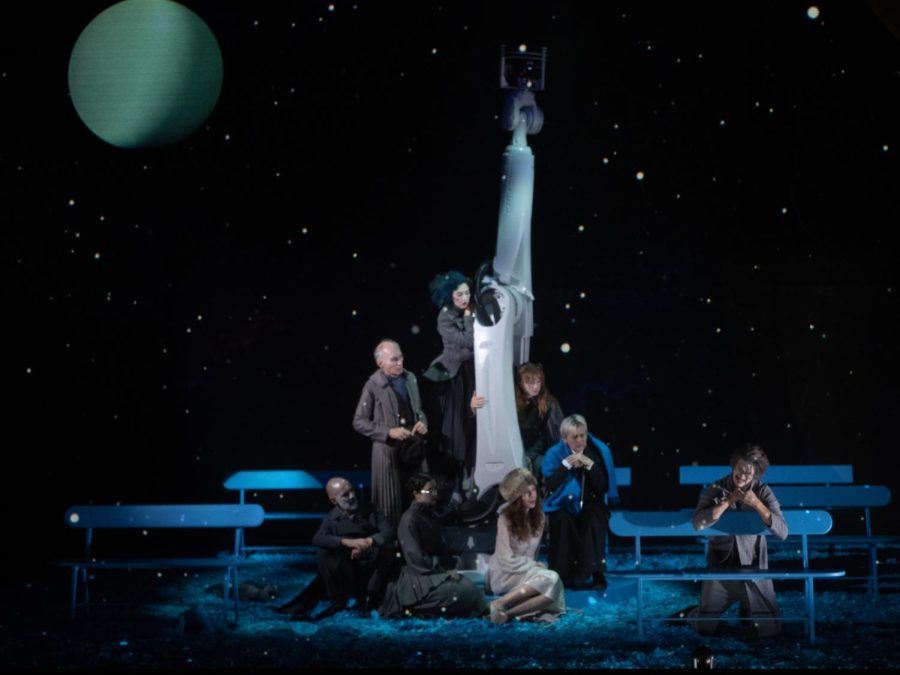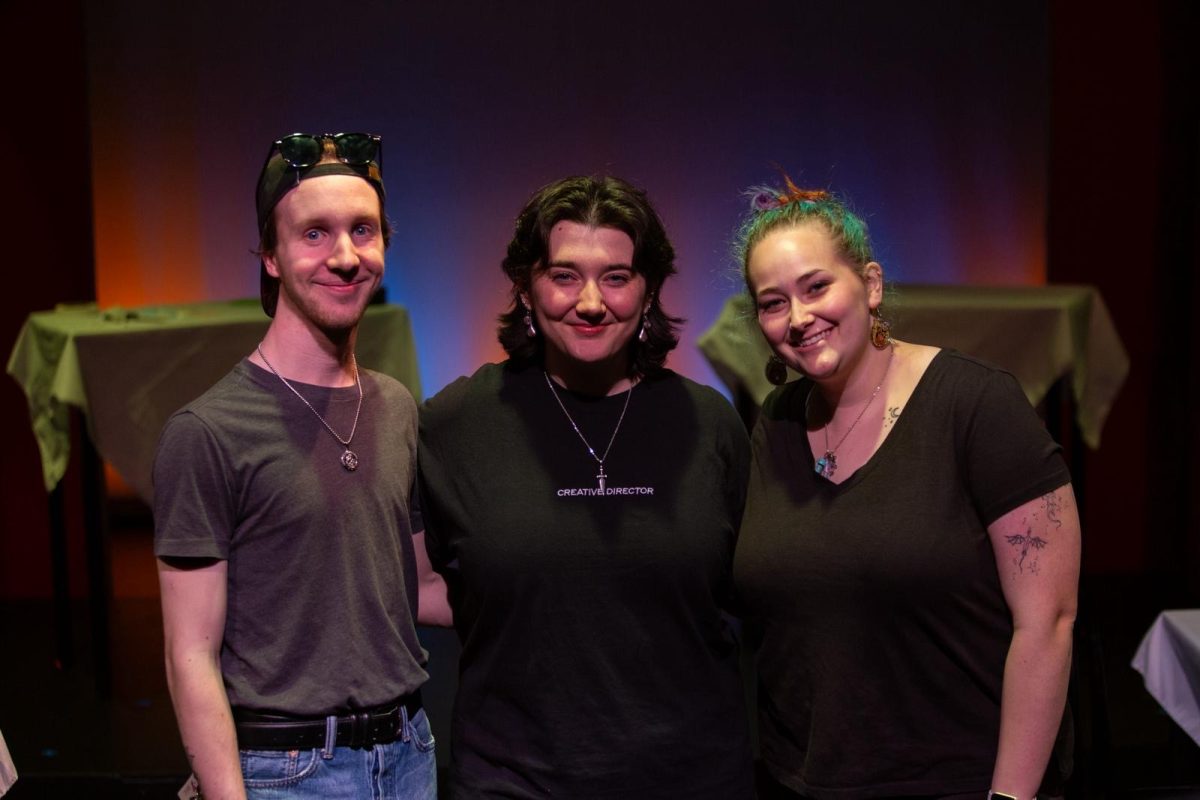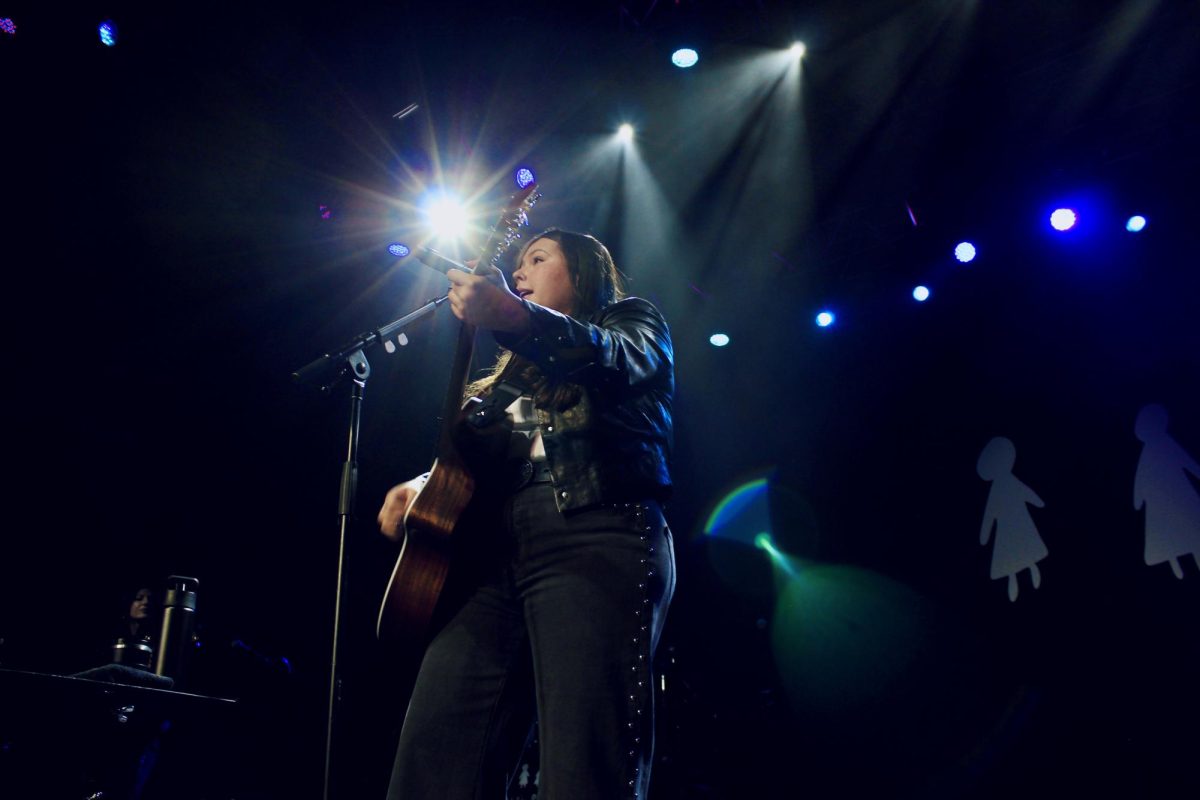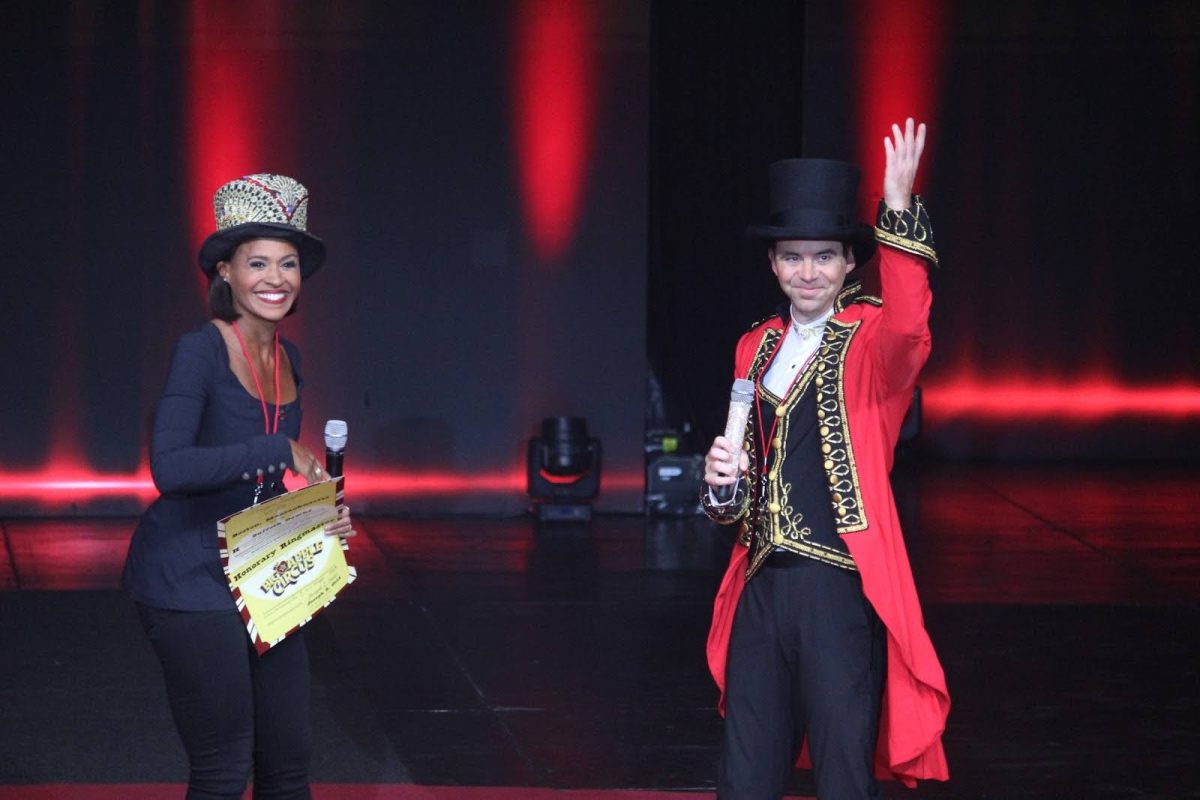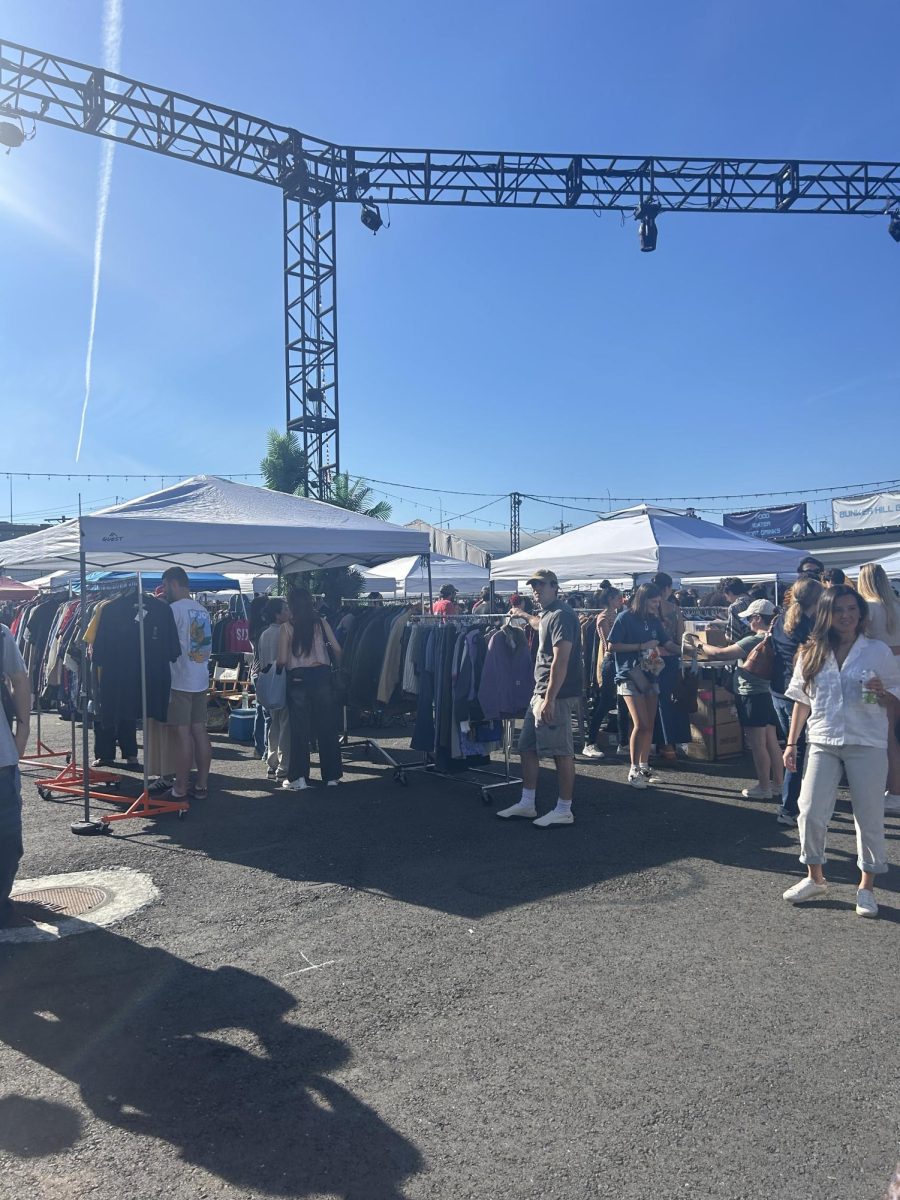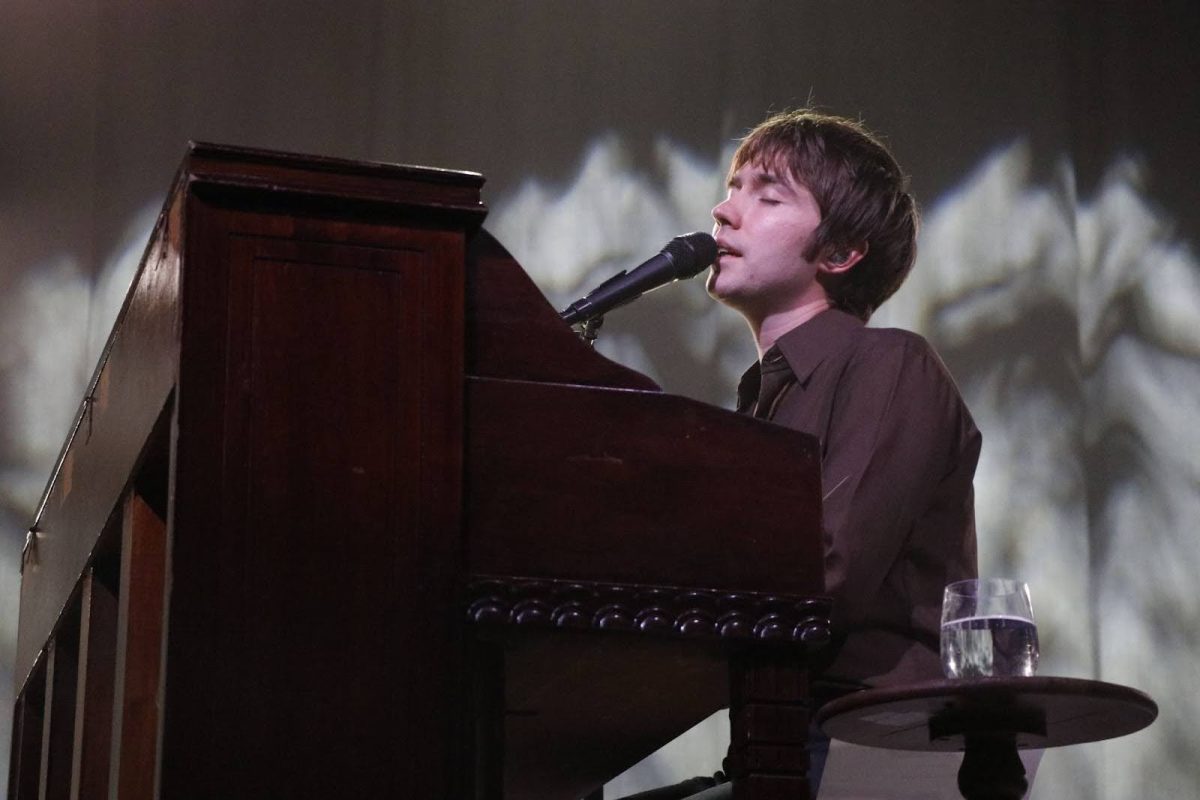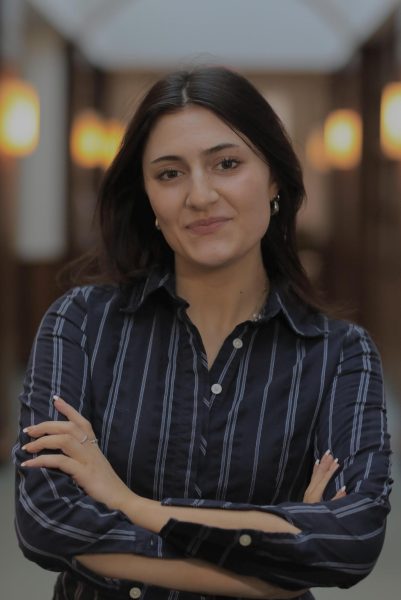The play “The Orchard” arrived at the Emerson Paramount Center on Nov. 4, bringing a classic play to a modern audience.
“The Orchard” is an adaptation of the 1903 Russian play, “The Cherry Orchard,” by Anton Chekhov. Both shows follow a Russian family struggling to maintain their lives as they slowly see their family’s orchard slip through their fingers.
The director and adapter behind the modernized version, Igor Golyak, is the founder of the Arlekin Players Theater and Zero Gravity Virtual Lab. Golyak is an advocate for the expansion of virtual theater, which led to the creation of his lab which was developed during the peak of the COVID-19 pandemic.
Zero-G specializes in creating theater for both in-person and online performances. The Arlekin Players focus their work around immigrant actors, specifically those from Russia, as well as breathing new life into classic Russian literature.
Golyak certainly accomplished bringing something new and innovative to viewers of “The Orchard.” Nothing about this production was classic, and this is the production’s greatest strength. “The Orchard” can be viewed in-person at the theater and via live stream. The overall experience is enhanced to properly serve both types of audiences.
“‘The Orchard’ is a play where the human is forgotten,” Golyaks said.
Golyak’s message was brought to the audience through a combination of the time period in which the show takes place, alongside a futuristic delivery.
The entire show was performed behind a thin mesh screen that had live footage projected onto it. The footage was broadcasted via multiple cameras on stage. These altering perspectives made the performance feel like a movie viewing, with multiple overlays of images from nearly every corner of the stage at some points.
Compared to television and film, this production had each piece of footage captured live from the stage, maintaining the authenticity of live theater while creating a new viewing experience.
There was also a mechanical set piece on stage throughout the whole show. The machinery came to life as a symbol of the orchard and all the people who have lived there. The machine was equipped with a light and a camera connected to the aforementioned projector. The machine could provide lighting to scenes or broadcast new perspectives of the stage to the audience.
When not in use, the set piece stood upright, and combined with a projection of leaves and branches, represented a tree. When Lyubov Andreevna Ranevskaya (Jessica Hecht) was confronted with the loss of the orchard, she had her back faced to the audience, but the machine captured her facials on the camera and they were projected in a stunning overlay over the stage.
One of the more distinct aspects of the show was the intersection of language on stage. The show utilized a combination of languages including Russian, French, American Sign Language and English, and used the projections to show various translations. Anya (Juliet Brett) and Trofimov (Seth Gore) shared a touching moment where Trofimov profoundly shared his love for Anya in ASL. While Anya didn’t understand how thoughtful Trofimov was, the translation of his words was shown, and this juxtaposition of understanding made for a comedic character moment for Anya.
When the languages were not translated, it did leave audiences in the dark. In Act III, a passerby (Gene Ravvin), spoke to the family almost entirely in a foreign language. This moment had no translation, and whilst the emotion brought by the actor was unforgettably moving, the words behind the emotion were lost to the audience. Still, such integration made for an experience much closer to the mission of the Arlekin Players, bringing focus to the members of the organization that come from countries that were formerly a part of the Soviet Union.
Stand-out performances were given by the leading actress Hecht, who portrayed the slow mental descent of a struggling mother coping with the loss of her family home with such pain.
Her performance was mesmerizing, as she slowly fluctuated between her understanding of her horrific reality and reverting to ignorant bliss as a coping mechanism. In one instance, Ranevskaya claims to see her mother in the orchard from her old nursery.
Gore also gave an outstanding and unconventional performance. Portraying the deaf Trofimov, he used American Sign Language throughout the whole show, along with the rest of the cast. Without words, Gore gave a stunning performance, full of emotion and perspective. A stunning ASL monologue was performed in the third act by Gore. As one of the only times his character’s language had no translation, his physicality continued to provide insight into his character’s emotions. The language barrier did not keep audiences from feeling his emotion through his expressive and intense body language.
The true star of the stage was Mikhail Baryshnikov, who played the family’s servant, Firs. Firs struggles with finding a sense of belonging, as his only family for most of his life struggles to keep the orchard he has called home for so long. Baryshnikov performed a stunning monologue to close out the show. As the show concludes, he is reminded that the family left him there. Baryshnikov’s emotional delivery is unmatched, and his comedic moments are unforgettable and witty.
The show runs through Nov.13. Whether you catch physical seats in the theater or experience the show from the comfort of your home, “The Orchard” is a worthwhile experience and a touching story of family and loss.
Follow Julia on Twitter @Julia_Capraro.


